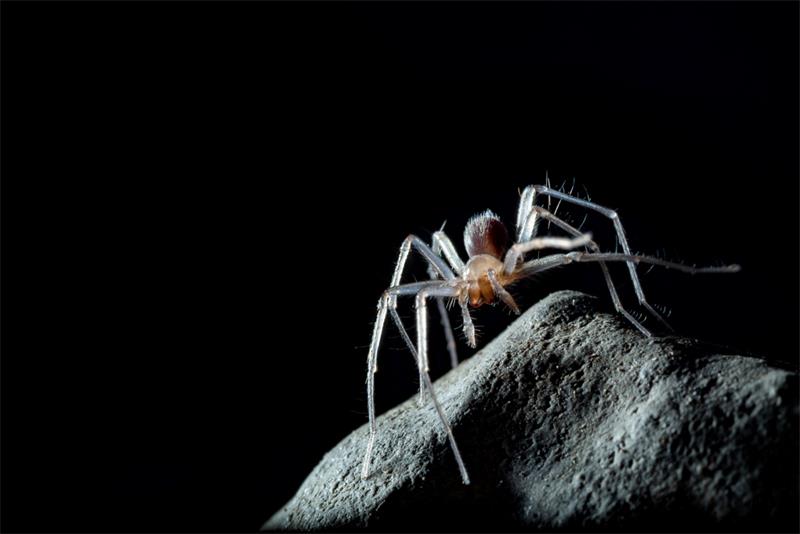It is commonly accepted that extreme environments, such as caves, could influence the diversifications of species, e.g., the existence of large numbers of morphologically closed species in caves. Due to the difficulties in separating these species, the biodiversities of cave organisms could be significantly underestimated. DNA barcoding is a widely accepted taxonomic method that uses a short genetic marker in an organism’s DNA to identify it as belonging to a particular species. It is a quite useful technology in determining novel species.
Recently, by combing morphological examination and DNA analysis, the research group of Prof. Suqiang Li (Institute of Zoology, CAS) performed taxonomic studies of the Leptonetela spiders (Araneae, Leptonetidae), and 46 novel species of Southwest China were indentified.
Leptonetela spiders distribute in Eurasia and the genus has 54 catalogued species. Among them, except for one species, which inhibits in Vietnam and built their homes in leaf litters; all the other 53 species are found in caves, including 42 species distributing in the Greek peninsula and adjacent areas. These spiders are cave adapted by morphological features, such as vestigial eyes and highly reduced skin pigmentation.
Leptonetela spiders are featured with small body size, only 2-3mm, and simple genital organ structures. In this study, in total of 624 specimens were sampled, their mitochondrial gene COI were analyzed and 90 Leptonetela species were diagnose, among them, 46 were novel species. The findings supported the existence of extreme male pedipalpal tibial spine and median apophysis polymorphism in Leptonetela species, with direct implications for the taxonomy of the group and its diversity. Moreover, the female Leptonetela zhai Wang & Li, 2011 was reported for the first time; and Guineta and Sinoneta were determined as the synonyms of Leptonetela genus.
This study not only significantly expanded the catalogued species of Leptonetela spiders, and emended the data of Leptonetela spiders in China, but also proved the high biodiversities of cave species of the Karst area of Southwest China with solid evidence..

Leptonetid spiders from Gradska spila on Biokovo mountain, Croatia (Photo by Tin Rožman)
Contact:
Shuqiang Li
IOZ, CAS
Lisq@ioz.ac.cn
